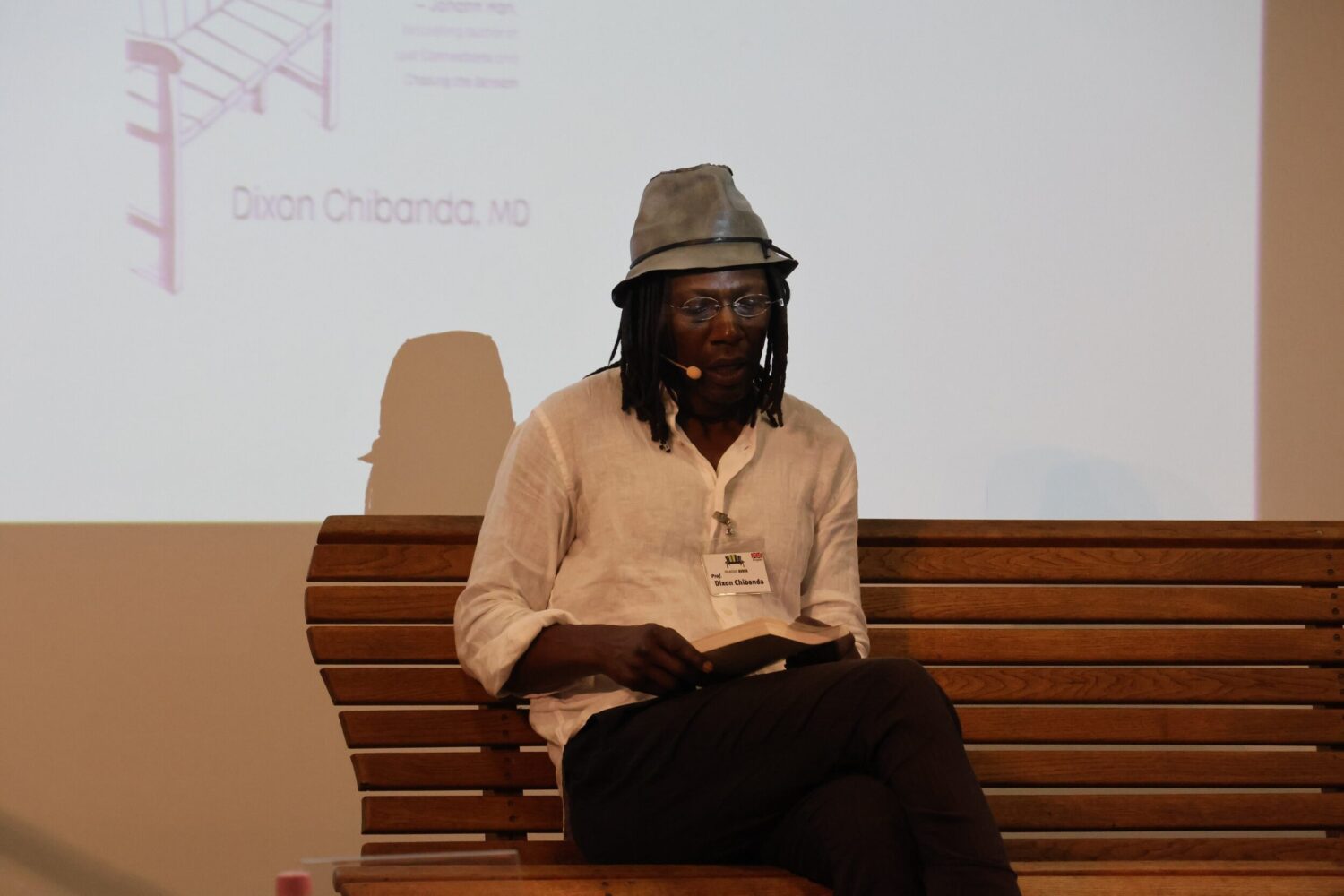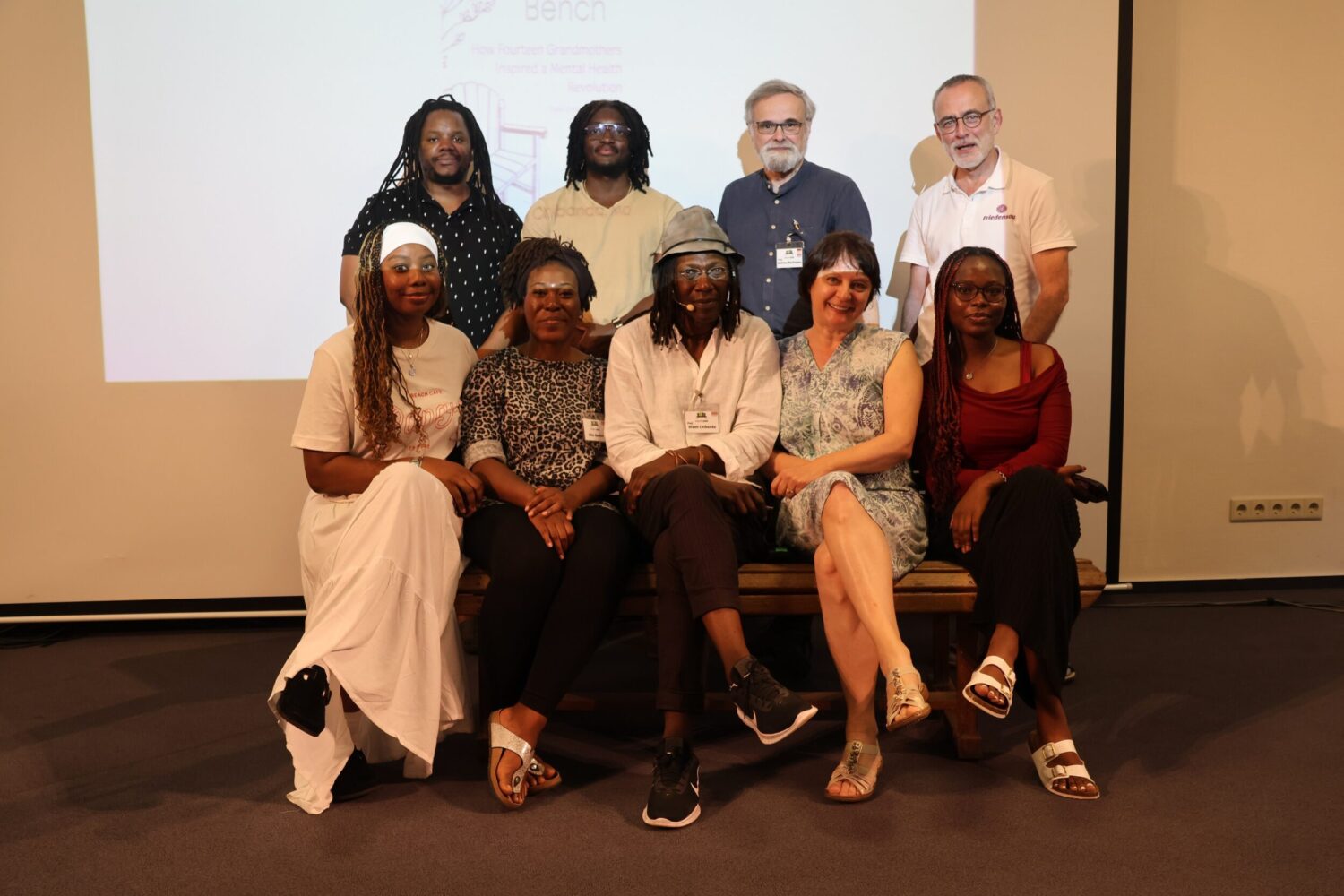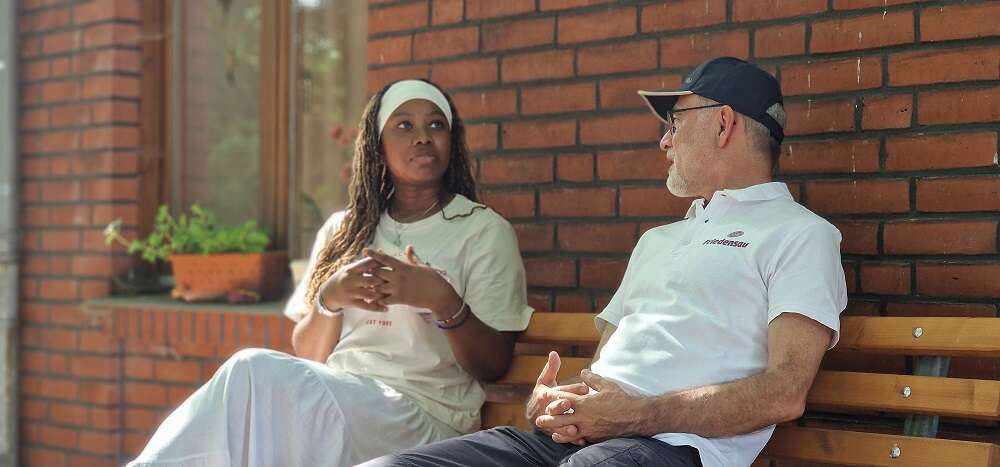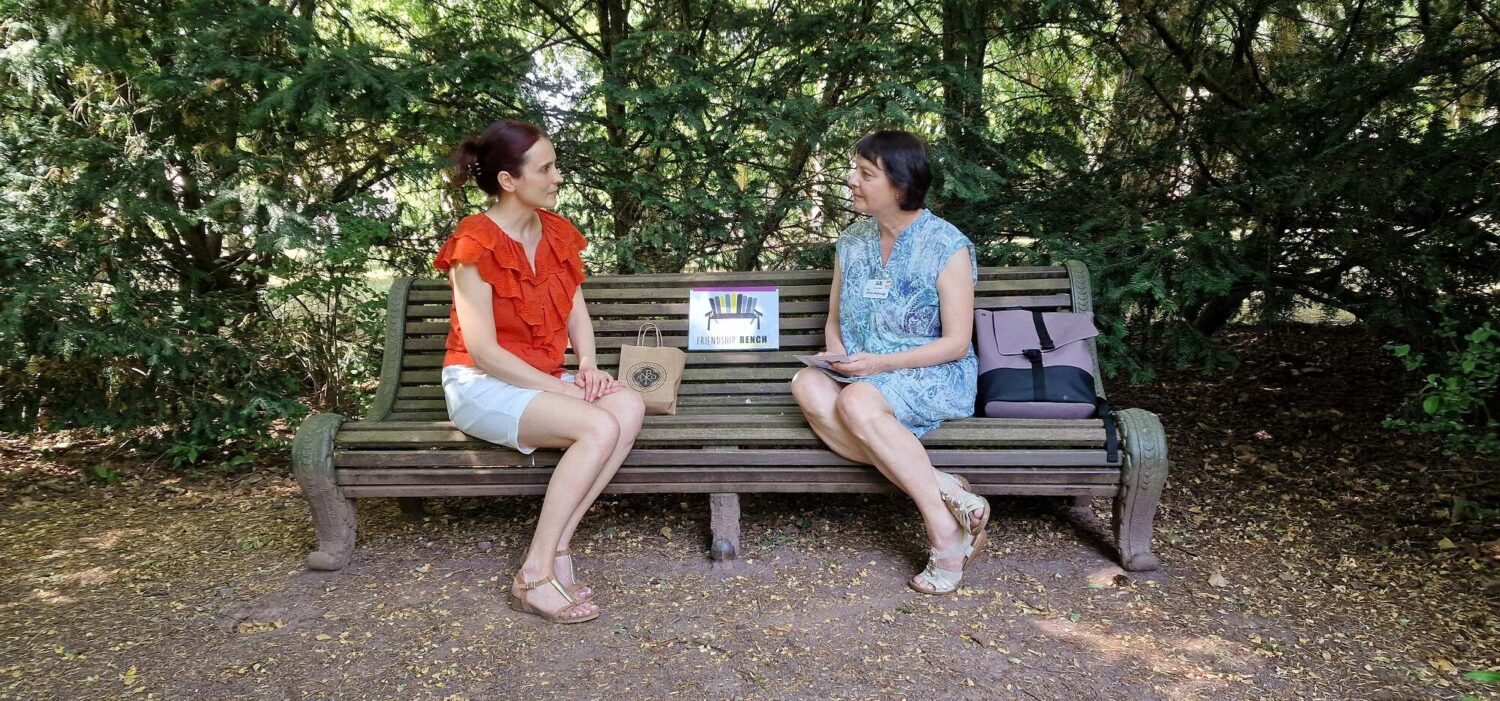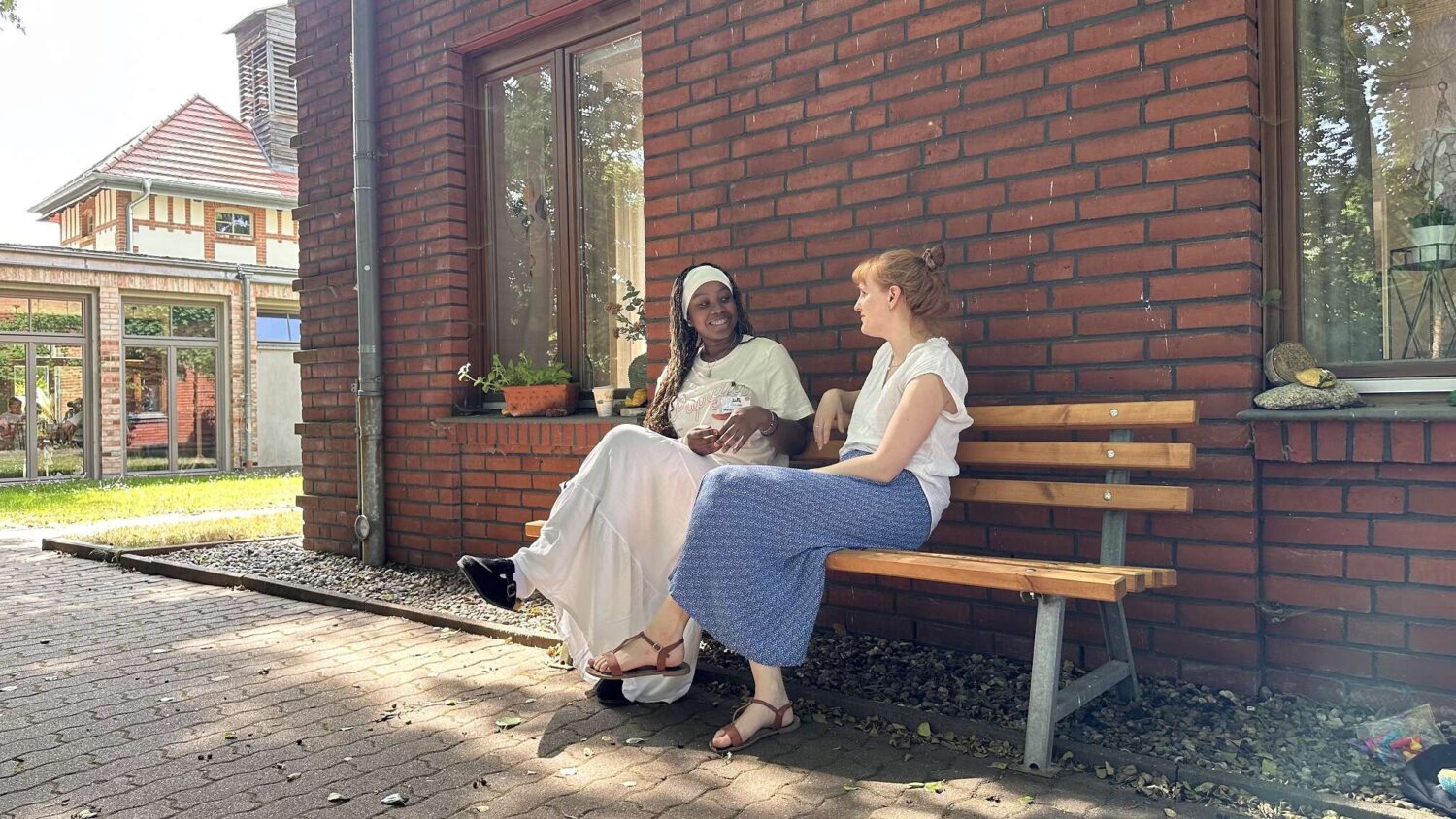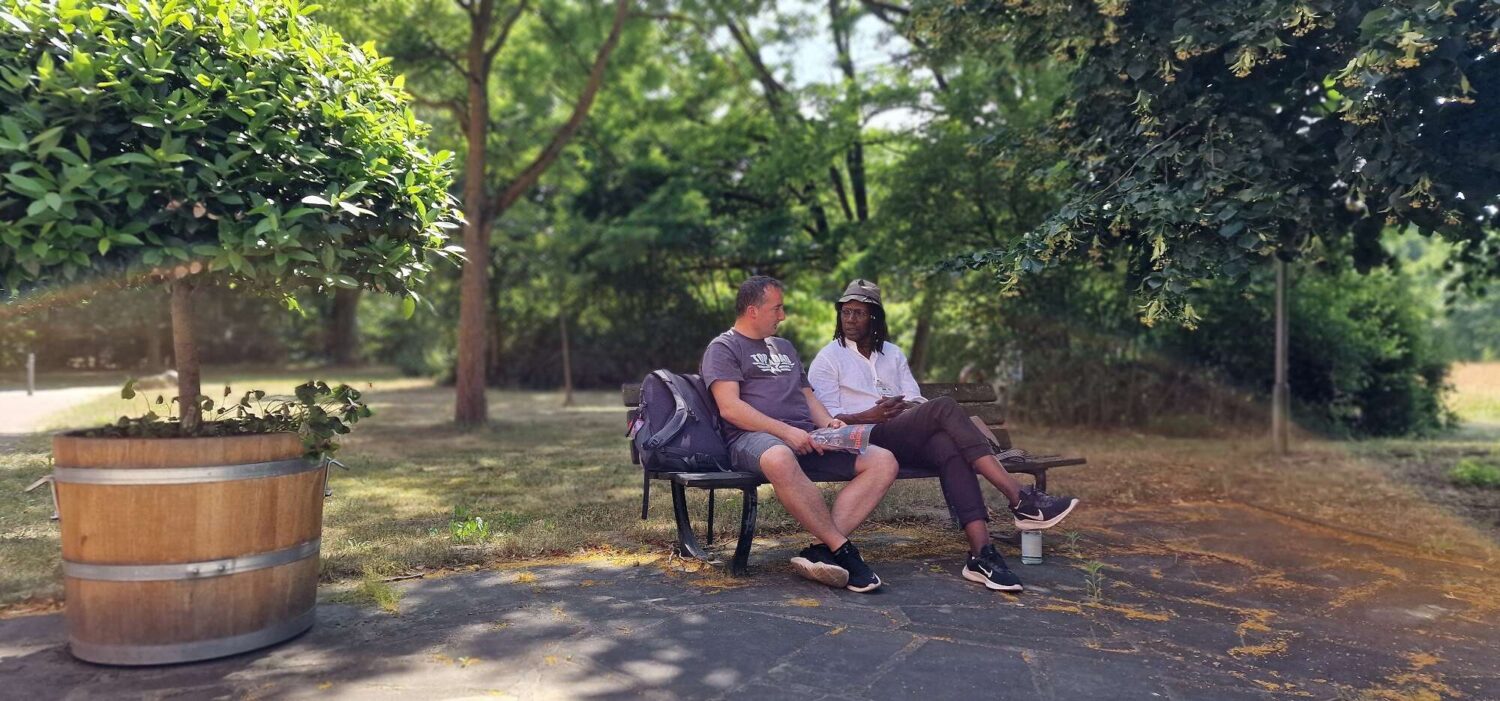Book Presentation Prof. Dixon Chibanda
22. Jul. 2025 / Campus Living / Science & Research
“The Friendship Bench: How Fourteen Grandmothers Inspired a Mental Health Revolution”
For the second time, we welcomed Prof. Dixon Chibanda, founder and CEO of the internationally operating non-governmental organization (NGO) “Friendship Bench” (FB) to the campus of Friedensau Adventist University in Friedensau/Saxony-Anhalt. Friendship Bench refers to a community-based, easily accessible lay counseling service for people who feel isolated, suffer from loneliness or are generally in a stressful life situation. The name “Friendship Bench” comes from the fact that these conversations take place on park benches in public spaces. It symbolizes a meeting place that embodies a trusting, safe place where it is possible to tell one's own stressful life situation or problem, one's own “story”. FB counselors listen openly without judging. They are there for the visitors in an empathetic and warm-hearted manner and accompany them in their search for a suitable solution and its implementation. What is special about this community-based counseling concept is that it is carried out by trained lay people, originally (and still to a large extent) by grandmothers. The effectiveness of the approach has been scientifically proven in numerous studies and published at a high level. Born out of the structural political and economic situation (especially the social and health care sector) in FB‘s country of origin, Zimbabwe, it is now attracting worldwide attention. Prof. Dixon Chibanda, a psychiatrist from Zimbabwe, has been a sought-after speaker and consultant for many years, not only in the public health sector of the WHO, but also at the World Economic Forum, the Aspen Ideas Festival and the TEDWomen conference, which made Friendship Bench accessible to an international audience on a large scale.
In April, Prof. Chibanda described the central element of Friendship Bench at a kick-off event to mark the first implementation of Friendship Bench in Germany as follows: “It's all about human connection”. Although the book presentation planned in April had to be postponed for logistical reasons on the part of the publisher, we were able to make up for it on June 22. Despite the summer heat of 33 degrees, Prof. Chibanda read passages that not only describe the motivation and starting point of the project, but also contained key messages for our multicultural campus and the social and global challenges of our time:
The starting and motivating point of Friendship Bench was the suicide of one of Prof. Chibanda's patients, Erica. She was unable to come to the clinic for further treatment as planned: Erica's mother reports: “We couldn’t make it because we had no bus fare to come to the hospital” (p. 19). This traumatizing experience for Chibanda motivates him to develop services for people like Erica and her family. Chibanda sees the solution in the continuous development of community-based first points of contact: park benches within walking distance of people's immediate living environment, where trained grandmothers are available to talk to them. The assumption that this concept would only be needed and could only work in countries of the Global South is not only refuted by numerous international studies, but also by the worldwide need for people who are there to listen and open up a safe space in the midst of a world characterized by increasing isolation and loneliness. Loneliness and depression are among the main stresses, but FB uses a culturally specific Shona language equivalent, kufungisisa, which translates as “overthinking” p. (53). Chibanda explains: “Across the globe, we are beginning to recognize that the cultivation of community is crucial, especially given the number of people who struggle with loneliness and isolation”(Preface 17). In addition to genetic dispositions, there are the so-called Social Determinants of Health: the diverse political, economic and social factors that are partly responsible for the development of mental stress. According to Chibanda, the 14 grandmothers - rich in life experience and marked by the many wounds of life - offer the following explanations: "While the grandmothers recognized that it often accompanied stressful situations, they didn’t see it as the primary symptom of an illness at all. Rather, it was a natural response to a wide range of social, family, political and economic challenges that people are facing, - something I had also come to think about more deeply in the wake of Murambatsvina, as well as the loss of Erica" (p. 53). Chibanda learns to recognize both worlds in the course of his work with the grandmothers. Born in Zimbabwe, Dixon Chibanda completed his medical studies in the Czech Republic, formerly Czechoslovakia, and reflects self-critically on his one-sided view: "While I had adopted a more Western way of thinking about people in relation to life - as atomized parts of an always fragmented whole - the grandmothers recognized something that the world at large is now beginning to see and honor: we are all connected, and if we don’t realize this soon enough, our persistent sense of isolation might tear us apart” (p. 116).
Regardless of his own biography, the perceived one-sidedness due to his Western-influenced medical studies, he emphasizes during the book presentation that apart from cultural, historical and ethnic differences, it is the similarities that people around the world share and that we should focus on, not the differences that separate us.
Dixon Chibanda is open to questions of any kind and, given the time available, engages in conversation with our students, inviting them to read and comment on spontaneously selected passages. Spontaneous, trusting situations arise and it becomes clear that it is the personality of this person that allows this kind of encounter and dialog. As a small university, we are deeply grateful for this and look forward to continuing this special collaboration (Text: Prof. Dr. phil. Dr. rer. medic. Silvia Hedenigg | All Photos: Friedensau Adventist University | Inna Mayer).
Video recording of the book presentation
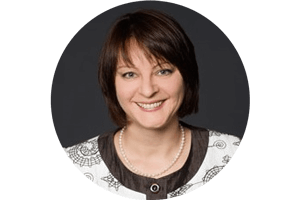
Image Rights: Friedensau Adventist University | private
